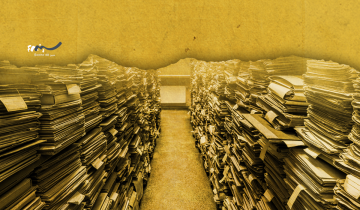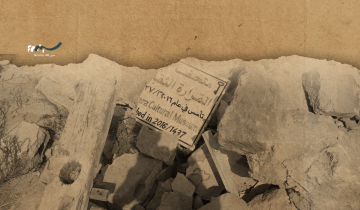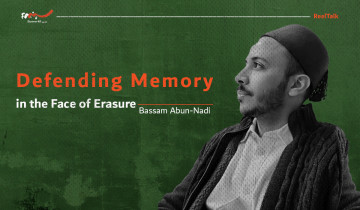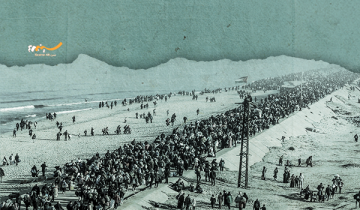Hope and Resistance Through Generosity
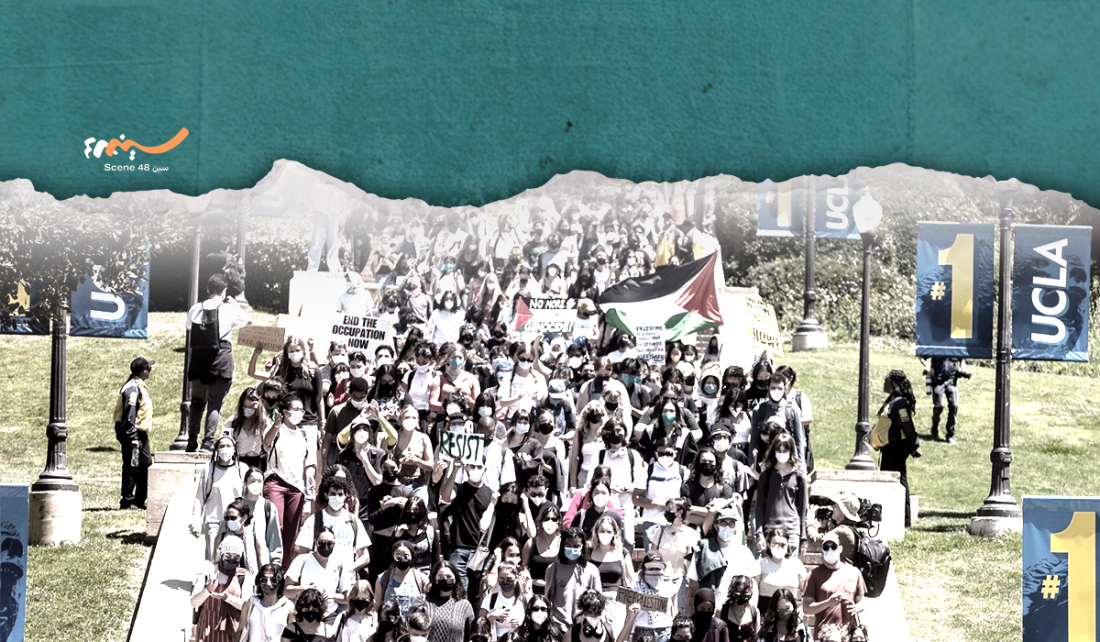
No one has shown me more generosity than Palestinian women. They have supported me through hardship and showered me with gifts during times of celebration. Welcoming me with immense openness, kindness, and hospitality, they model human decency that I strive to replicate in my own interactions. As a recipient and student of these gifts, I believe that the tenacious generosity expressed by Palestinian women resists and defies Israel’s attempted erasure of Palestinianness, giving birth to hope and the possibility of a whole future amid genocide and Nakba.
In fall 2024, seven fellow students and I faced disciplinary action after launching a sit in at our university. To defend against suspension or expulsion, we hired a lawyer and launched a fundraiser for legal fees. That month, after I led a prayer at a multifaith vigil, the Imam organizing the event asked to share our fundraiser. As soon as I sat down, a Palestinian woman behind me tapped my shoulder. I had known this woman for around a year; since she and a number of other Palestinian women brought maqlubeh and mujadara to my university’s encampment. Ever since meeting this woman I had looked up to her for dedicating copious time and resources to helping her people, transferring funds through networks of family and friends to provide direct relief for Palestinians in Gaza. This time, she was showing her phone and Venmo app to me, donating $500 and promising another $500 the next day. This overwhelming gesture covered more legal fees than any other community member, with her insisting “no need to thank me, I’m so proud of you all.”
Later that winter, I became close to Hedaya, a writer who had relocated from Gaza to Cairo and later to our small town in Connecticut. The first time I met her, she welcomed me and other students into her home, introduced us to her family, and gave us keychains with hand-painted maps of Palestine she had brought from Cairo. During that winter, we went on walks and talked for hours at a time. We drank strong coffee and tea with maramiyya (sage), ate dates—always in odd numbers—and shared great times which left me feeling buzzed from both the caffeine and Hedaya’s countless gifts. Later that spring, I invited my friends to celebrate my graduation, but that morning Hedaya texted me that she wouldn’t come: “I hope you enjoy today. I am sorry my mind is busy following the things in Gaza.”
A few days later, during graduation, I wore the sash she once draped around my neck like a pageant winner, covered in keffiyeh and the Palestinian flag. Before leaving for the summer, she invited me over for vegetarian maqlubeh. At the end of the evening, she said she had a gift for me and handed me a beautiful floral box tied up with a pink bow. Inside, I pulled out gift after gift after gift: a gold Handala necklace, a ring engraved with Mahmoud Darwish’s “On This Land” in the shape of Palestine, a new dress, a scarf, a pin, a bracelet, and a pop-up graduation card reading, “Dear Batya, we love you! Happy graduation.” She also sent me home with a mountain of leftovers and a giant box of baklava for my mom’s upcoming birthday.
I firmly belief that in the context of genocide, these acts of generosity directly resist Zionism’s relentless onslaught against Palestinian life, society, culture, and existence. In this moment, Israel’s starvation campaign has been designed to cause social collapse in Gaza, transforming a people known for incomparable hospitality and warm food gatherings into starving individuals desperate for any meal. I feel the grotesque, crushing hopelessness and inequity of witnessing these crimes daily, watching people under siege while I have access to enough food, shelter, medical care, and a whole intact family. Yet I know Palestinian friends, especially dear ones who have lost relatives in this genocide, experience survivor’s guilt, helplessness, and depression in ways I never will.
What I can say is that in the face of these atrocities and the personal losses, the Palestinians in my life refuse to let the fiery hospitality and generosity that define them diminish. Acts of loving kindness and giving are wired into my friends’ nervous systems, so much that even when directly impacted by the genocide, they tirelessly welcome, provide for, celebrate, watch out for, and advise me. These days, this confounding generosity is one of the only things that makes me hopeful. Though it will take more than local acts of giving to shift geopolitical realities, their example inspires me with a certainty that the future will be better than the present, that humanity stands firmly with Palestinian people, and that no matter what, Palestinians will never be erased.
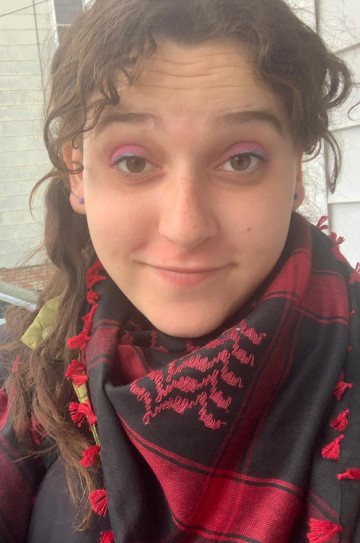
Batya Kline
A musician and writer from Arlington, Virginia. She received a masters in ethnomusicology from Wesleyan University.
